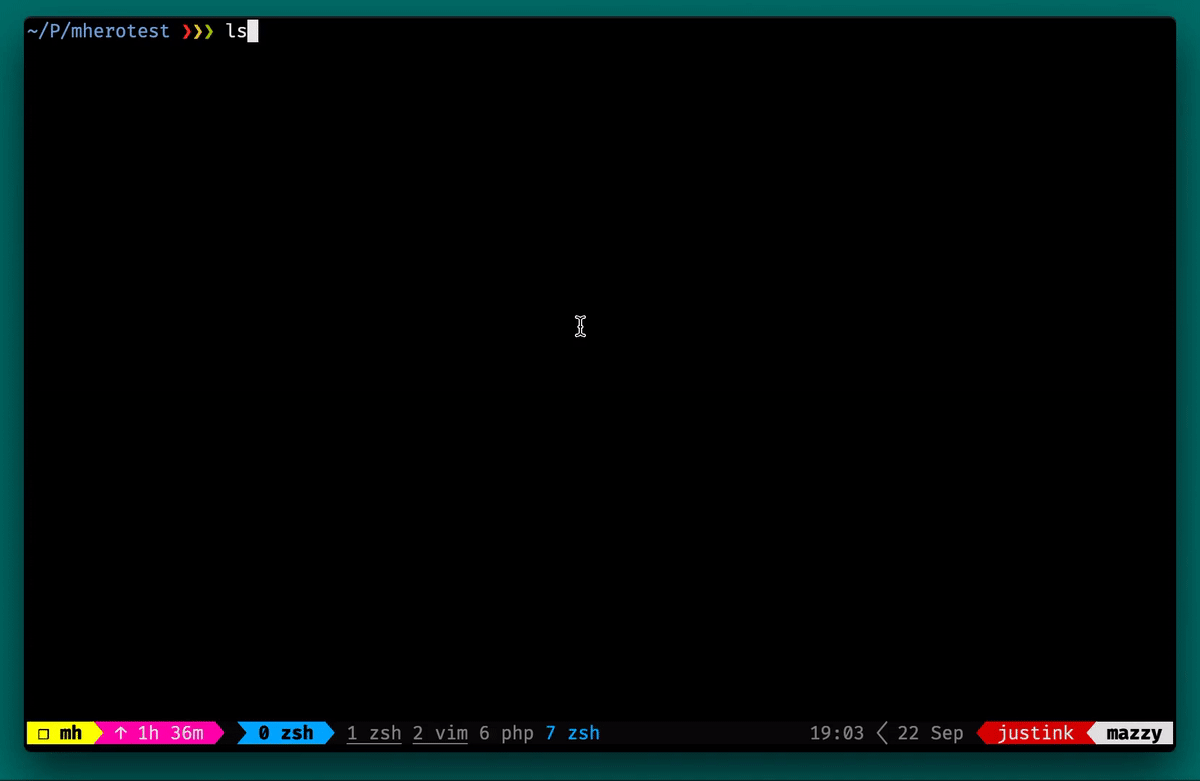https://github.com/jkrup/meteor-hero
Instantly deploy your Meteor apps with `meteor-hero`
https://github.com/jkrup/meteor-hero
cli deployment docker heroku meteor meteor-application meteor-apps npm-package
Last synced: 4 months ago
JSON representation
Instantly deploy your Meteor apps with `meteor-hero`
- Host: GitHub
- URL: https://github.com/jkrup/meteor-hero
- Owner: jkrup
- Created: 2019-09-19T22:16:06.000Z (over 6 years ago)
- Default Branch: master
- Last Pushed: 2023-01-04T10:50:43.000Z (about 3 years ago)
- Last Synced: 2025-02-02T05:31:28.735Z (about 1 year ago)
- Topics: cli, deployment, docker, heroku, meteor, meteor-application, meteor-apps, npm-package
- Language: JavaScript
- Size: 1010 KB
- Stars: 38
- Watchers: 6
- Forks: 3
- Open Issues: 23
-
Metadata Files:
- Readme: README.md
Awesome Lists containing this project
- awesome-meteor - meteor-hero - Deploy MeteorJS applications for free with one command utilizing Heroku's service. (Deployment)
README
# Meteor Hero
*meteor-hero* is a tool to instantly deploy MeteorJS applications for free with one command utilizing Heroku's service. Just run `meteor-hero` and instantly deploy your Meteor app like you could back in the good 'ol days of `meteor deploy`.

# Install
## Prerequisites
### Docker
You'll need Docker installed and running to use `meteor-hero`: https://docs.docker.com/install/
Via Homebrew:
```
brew install docker
```
### Heroku
Install heroku's CLI tool: https://devcenter.heroku.com/articles/heroku-cli#download-and-install
Via Homebrew:
```
brew tap heroku/brew && brew install heroku
```
### Meteor-Hero
And then install `meteor-hero` via NPM:
```
npm i -g meteor-hero
```
# Description
*meteor-hero* is the easiest zero-configuration tool to deploy MeteorJS apps for free, yet can scale up to production usage.
## Details
This program is designed to be run inside of a MeteorJS project and will do the following:
1. Build the meteor application to BUILD_DIR (Default: `~/.meteor-hero/builds`)
2. Unzip the contents of the built meteor application
3. Write a Dockerfile in the BUILD_DIR
4. Create a new heroku instance with a MongoDB addon and set the appropriate env variables
5. Release the heroku container and print the URL where it is accessible
# Usage
```
meteor-hero [options]
Description:
This program is designed to be run inside of a MeteorJS project and will do the following:
1) Build the meteor application to BUILD_DIR (Default: ~/.meteor-hero/builds)
2) Unzip the contents of the built meteor application
3) Write a Dockerfile in the BUILD_DIR
4) Create a new heroku instance with a MongoDB addon and set the appropriate env variables
5) Release the heroku container and print the URL where it is accessible
Note: If run outside of a meteor application, may crash due to `meteor build` failing
Options:
-h Displays help message
-b DIR Overwrite BUILD_DIR
-e VAR=value Environment variables to set on the deployed heroku instance.
-E `FILE` Env file to be read for environment variables to be set.
Commands:
[] By default deploys a MeteorJS application to heroku.
-u Update instead of creating a new url, update the previous deploy. The file .heroku_app_name must exist and contain the previous app name.
Examples:
– Deploy with environment variables
$ meteor-hero -e MONGO_URL="mongodb://user:pass@example.mongo.com" -e ROOT_URL="example.net"`
– Deploy using env file
$ meteor-hero -E prod.env
```